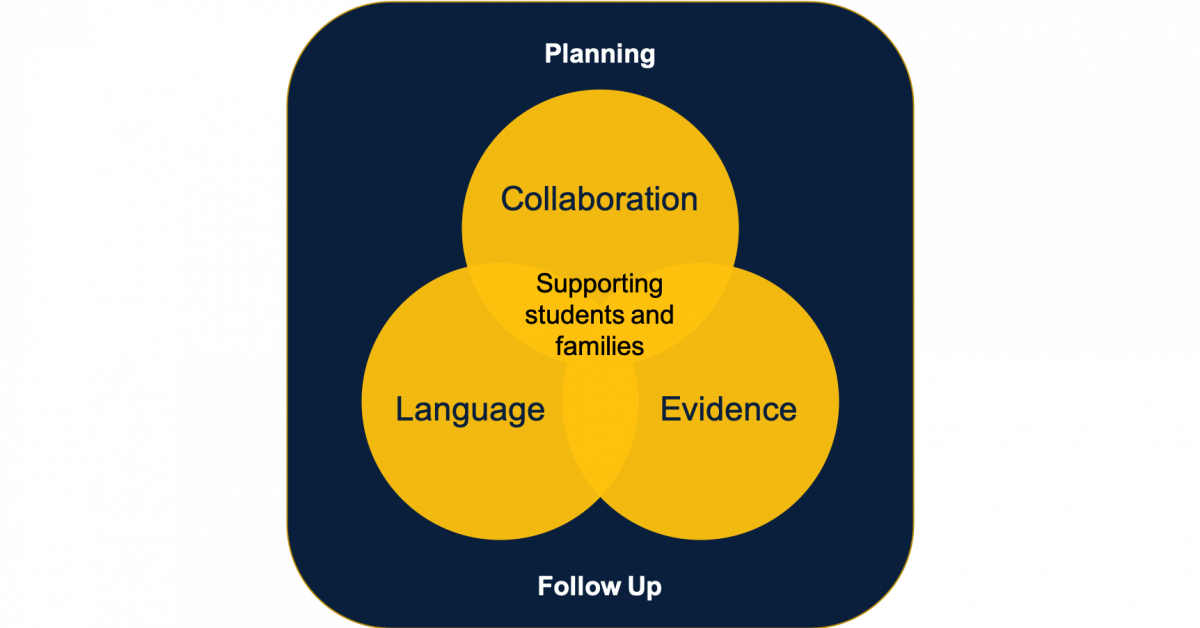What is the work of communicating with families?
Careful and sensitive communication between teachers and families supports student learning. Teachers communicate with families to learn more about children from the people who know them best. Teachers share information about children’s activities, learning, and development. Teachers seek ways to partner with families. Communication may take place in person, in writing, or in phone calls. Every conversation with a family is a chance for the teacher to communicate a respectful, open attitude and create a space for a two-way conversation. Teachers must be attentive to considerations of language and culture, respectful and valuing of families, and oriented to working with families to support children.
How can communicating with families advance justice?
Without careful consideration, communications with families can reproduce patterns of injustice in home-school relationships. For example, scheduling meetings or events during school hours, communicating only in English, and making assumptions about “home support” can alienate many families. Instead, teachers can partner with families to access the specialized knowledge they have about their child including: a deep understanding of their strengths, what they care about, conditions for how they learn best, and expertise about home culture and family life. Communication offers opportunities for teachers to learn about a child’s past experiences in school, how different family members have experienced school themselves, the goals families have for students, how families think they best support their child at home, and details of the home schedule. Talking with families opens doors for parents to see their child as a student, and for teachers to see their students as whole, multifaceted human beings.
How do we decompose the practice into learnable parts?
The diagram below breaks down work that teachers do when they are communicating with families. This breakdown, or decomposition, helps teacher educators to break down the practice into a set of parts that can be observed and practiced.
